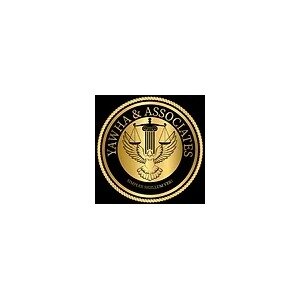Best Tax Lawyers in Port Vila
Share your needs with us, get contacted by law firms.
Free. Takes 2 min.
List of the best lawyers in Port Vila, Vanuatu
About Tax Law in Port Vila, Vanuatu
Tax law in Port Vila, Vanuatu is unique due to the country's status as a tax haven. The Vanuatu government imposes no personal income tax, corporate tax, capital gains tax, or inheritance tax. However, there are other forms of taxation including Value Added Tax (VAT), import duties, and other business-related taxes. The absence of direct taxes makes Vanuatu an attractive jurisdiction for investors and expatriates.
Why You May Need a Lawyer
There are several common situations where you might require the help of a tax lawyer in Port Vila, Vanuatu:
- Business Setup: Guidance on tax-efficient structuring of new businesses.
- Compliance: Ensuring all business activities comply with local VAT and duty regulations.
- Tax Disputes: Representation in disputes with Vanuatu tax authorities.
- Investment Advice: Structuring investments to take advantage of Vanuatu's tax incentives.
- Cross-Border Transactions: Advice on the tax implications of international transactions.
Local Laws Overview
The tax system in Port Vila, Vanuatu is governed by several key pieces of legislation:
- Value Added Tax Act: VAT is levied at a standard rate of 15% on most goods and services.
- Customs Act: Governs the duties imposed on imported goods.
- Business License Act: Regulates the issuance of business licenses and the fees associated.
- International Companies Act: Allows for the establishment of offshore companies with minimal taxation.
Frequently Asked Questions
1. Is there any income tax in Vanuatu?
No, Vanuatu does not impose any personal or corporate income tax.
2. What is the VAT rate in Vanuatu?
The VAT rate in Vanuatu is 15%, applied to most goods and services.
3. Do expatriates need to pay taxes in Vanuatu?
Expatriates are not subject to personal income tax in Vanuatu, but they must pay VAT and other applicable duties.
4. How are imported goods taxed in Vanuatu?
Imported goods are subject to import duties as specified by the Customs Act. The duty rates vary depending on the type of goods.
5. What taxes apply to businesses in Vanuatu?
In addition to VAT, businesses may need to pay business license fees and any applicable import duties.
6. Are there any tax treaties between Vanuatu and other countries?
Vanuatu has limited tax treaties with other countries, so it's essential to consult with a tax lawyer for specific advice on international transactions.
7. How can I dispute a tax assessment in Vanuatu?
You can lodge an appeal with the relevant tax authority in Vanuatu. A tax lawyer can assist you in navigating this process.
8. Can I set up an offshore company in Vanuatu?
Yes, the International Companies Act allows for the establishment of offshore companies with minimal taxation.
9. What are the penalties for non-compliance with VAT regulations?
Penalties for non-compliance with VAT regulations can include fines and interest on overdue amounts. Legal advice is recommended to manage compliance.
10. Are there any tax incentives for investors in Vanuatu?
Yes, Vanuatu offers various tax incentives for investors, particularly in designated development sectors.
Additional Resources
Here are some resources that may be useful for legal advice on tax matters in Port Vila, Vanuatu:
- Vanuatu Financial Services Commission: Regulates financial services and corporate registration in Vanuatu.
- Department of Customs and Inland Revenue: Manages VAT and import duties.
- Vanuatu Investment Promotion Authority: Assists with investment-related queries and provides information on tax incentives.
Next Steps
If you need legal assistance with tax in Port Vila, Vanuatu, consider the following steps:
- Consult a Tax Lawyer: Seek expert advice to understand your tax obligations and opportunities.
- Gather Documentation: Collect all relevant financial and business documents for a comprehensive consultation.
- Understand Compliance Requirements: Ensure you are informed about the local tax laws and compliance requirements.
- Consider Long-Term Planning: Develop a strategic tax plan that aligns with your business and personal financial goals.
Taking these steps can help ensure you are well-prepared to navigate the tax landscape in Vanuatu effectively.
Lawzana helps you find the best lawyers and law firms in Port Vila through a curated and pre-screened list of qualified legal professionals. Our platform offers rankings and detailed profiles of attorneys and law firms, allowing you to compare based on practice areas, including Tax, experience, and client feedback.
Each profile includes a description of the firm's areas of practice, client reviews, team members and partners, year of establishment, spoken languages, office locations, contact information, social media presence, and any published articles or resources. Most firms on our platform speak English and are experienced in both local and international legal matters.
Get a quote from top-rated law firms in Port Vila, Vanuatu — quickly, securely, and without unnecessary hassle.
Disclaimer:
The information provided on this page is for general informational purposes only and does not constitute legal advice. While we strive to ensure the accuracy and relevance of the content, legal information may change over time, and interpretations of the law can vary. You should always consult with a qualified legal professional for advice specific to your situation.
We disclaim all liability for actions taken or not taken based on the content of this page. If you believe any information is incorrect or outdated, please contact us, and we will review and update it where appropriate.








